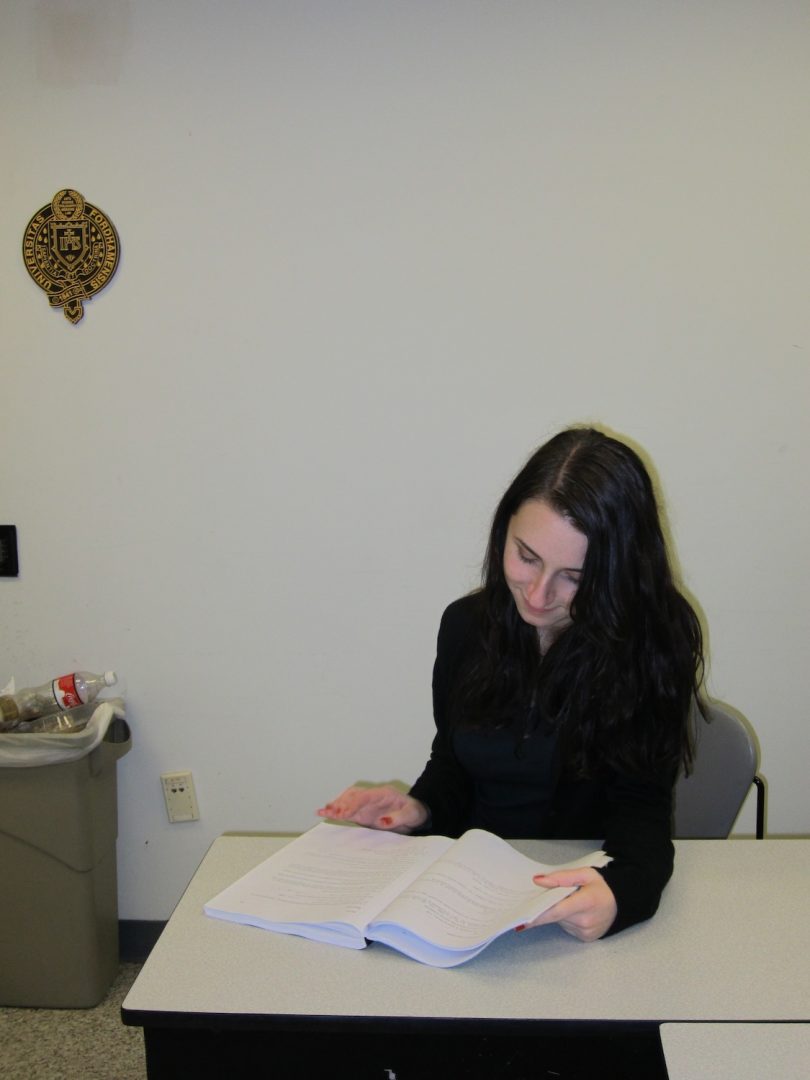Can I Get That To Go? Take-Home vs. In-Class Exams
Students and Professors Share Their Thoughts on Different Kinds of Final Exams
December 7, 2011
By now you can probably hear the whimpers of fellow classmates as the stress of finals sets in. Whether it be a final paper for an art history class or an exam for a two hour media ethics class, the stakes and tensions are high for this test week. When it comes down to it, there are two common testing methods that Fordham Lincoln Center (FCLC) professors use on students: A take-home project/exam or an in-class exam. So which testing method is preferred among the students and professors at FCLC?

Take-home exams are generally regarded as a paper that students can properly prep themselves for. There are no surprises and students can utilize their notes. There is a certain predictability to the whole ordeal. Class exams, on the other hand, are better suited to those students who work best under pressure.
Diana Popstefanov, FCLC ’12, said that she prefers in-class exams because they give relief to the student once they’re over.
“I do like in-class exams because I think you study and you get it over within two hours and you don’t have to worry about it all weekend. You just do it on the spot.”
Professor Lori Knight of communications and media studies believes that in-class exams are good because they present students’ proper voice. It is a way to ensure that students don’t cheat on their exams.
“There are students who are trying to scam the system and professors can compare the difference between their in-class final and the other work throughout the semester,” Knight said.
Kat Kaneb, FCLC ’12, thinks that take-home essays are beneficial for students, especially since you can use tools such as spell check.
“I really like doing take-home essays. I think it’s a great option to have. Otherwise, you’re just sitting there for two hours and you don’t have spell check and you don’t have anything else like that. It’s particularly helpful for my foreign language exams because spell check is better than searching through your French-English dictionary.”
Students can also research an argument properly for a take-home final. As well as liking in class exams, Knight also believes that take-home exams are useful under certain circumstances. She feels that a student can develop an argument better on a take-home final.
“There are so many advantages to having students take their exams home and really think about what they want to write. It prevents [the student] from spending a lot of time writing about what they think they know. But for a take-home final, you have the opportunity to do the research to find out if your supposition on something is, in fact, truthful. You’re looking at a much more reasoned argument as opposed to something that is coming from the top of your head,” Knight said.
Professor Brian Orgen of theology believes that take-home finals are easier to grade. “In terms of grading, a take-home exam is printed out and it makes it much easier to read than just scribbled out script,” Orgen said.
Some say that professors enjoy seeing students suffer with finals, but perhaps some of them choose the type of exam for specific reasons. Vincent Pisano, FCLC ’13, thinks that the type of final suits each course individually.
“I prefer to take home my finals for intensive writing courses [in] English, but for classes that have more exams throughout the semester, like science, math or psychology, I prefer an actual test. “
Students and professors may be annoyed with the pressures that in-class exams cause such as illegible writing, wrong information and a set timing. A take-home exam seems to have more advantages, but for those few individuals who work well under pressure, an in-class exam is the best way to end the semester.









